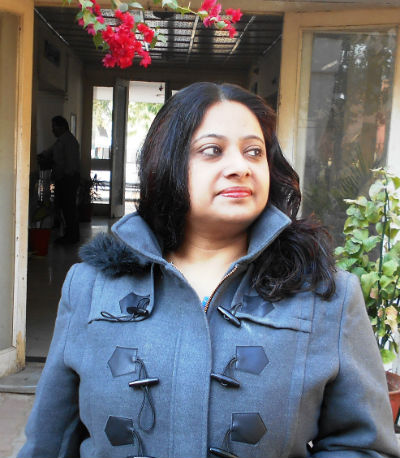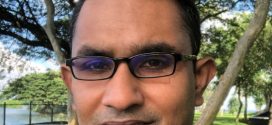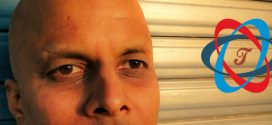Hi friends,
Allow me to introduce Mala Mukherjee. Recently we got a chance to read her book Chronicle of Lost Empire: Secrets of Nalanda. The book is a historical fiction which talks about various earlier invasions faced by India (that is Bharat). The book is a complex narration which she penned down interestingly. Some of the characters look historical, some of them are mythological and some of them look like they appear in the book from the real life.
You can read our unbiased book reviews for – Chronicle of Lost Empire: Secrets of Nalanda – by visiting the below given link:
Chronicle of Lost Empire : Secrets of Nalanda by Mala Mukherjee | Book Reviews
This is not her first published book, though, it is the first one by her which we got a chance to read. Impressed by her writing style we’ve decided to have an interview session with her. Fortunately the things worked out as expected and from our team, I got a chance to have this interaction with her.

Mala Mukherjee – Author of Chronicle of Lost Empire: Secrets of Nalanda
So, without any further delay, let me share the Q/A session with her.
We thank you on behalf of Team ThinkerViews to be available for an interview. Congratulations for getting your book Chronicle of Lost Empire: Secrets of Nalanda published.
Thank you Jiten sir for your kind support and the invitation for this interview. It is indeed a dream come true for me to receive such a good response for my book. When someone likes my work, I feel I am an inch closer to my dream, but I have to walk miles for achieving perfection.
I am an academician by profession. Recently I have completed my doctoral degree from Jawaharlal Nehru University, New Delhi on Geography. Currently I am working in a research organisation named Indian Institute of Dalit Studies (IIDS), New Delhi, as an Assistant Professor.
I work on urban geography. My profession demands publication and attending seminars across the world. Gradually, writing became my hobby and I decided to revive my childhood passion of fiction writing in a broader level.
Apart from writing, I love to read books; I am an avid reader. I like to read new stories of all genres.
My passion for books and travelling draw my interest towards writing books. I love to visit historical monuments and carefully note down local history, folklores and myths, which ultimately encourage me to write new stories.
Last year I visited Nalanda. Its archaeological ruins and history fascinated me. I started reading its history and found the university’s strong association with politics. It played a crucial role in the last days of Gupta Empire. Fall of a mighty empire led to anarchy or “matsyanaya”, where three kingdoms started aspiring to control ‘Uttarapatha’ or the Northern Trade Route. These three kings’ battle led to the rise of Bengal as a separate kingdom. This time frame appeared ideal for setting the scene for my story. I planned to make a series, so started from the days of the university’s inception, when its founder father Acharya Vasubandhu fled from Takshila to Magadha with his trusted disciples and took shelter in Emperor Narasimha Gupta’s court for hiding a secret from the foreign invaders and greedy scholars. Fifty years later, a prince of Magadha wanted to find out the secret for saving his motherland from the Huns. The story is based on a lesser known legend, which tells that one of the later rulers of Gupta dynasty sent his son to Nalanda, for finding out remedies of Hun invasion.
My challenge started since the inception of the story idea. First of all, I am not a hard core history student. I carefully developed the base partially on history and partially on myths and folklores.
Then I developed the characters, put thought on their names, physical attributes, dresses, and dialogues and regional variations in culture and language.
Infusion of many non-English words would be a serious problem for the international readers. Therefore, I added a glossary at the end.
Moreover, development of Hun characters was a big challenge, especially the Huns of Central Asia. Huns (Swet Huns) got divided into various branches and those who invaded India, they gradually assimilated with Indian culture, but their Central Asian counterparts preserved difference. Their culture, believe, clothing and attires required special attention, because my book is a bit descriptive.
The next challenge was writing the war scenes, where different types of weapons had to be described with details. From various museums and mythological TV serials, one can imagine old weapons and war strategy, but the Huns had very different sets of weapons and war tactic. They mainly used small bows and used to throw arrows from the horseback. However, in India, war elephants were predominant. I infused magic in warfare, but tried to relate it with early shamanism.
Thankfully, I am a Geographer that is why I did not face much challenge in portraying weather, climatic conditions and landscape of different countries and cities. I had an idea of their locations, but my map making software crashed that time, so, could not provide a map. I think it is a serious draw back in my book, especially for the international readers. In the second series, I’ll attach a map with kingdom names and locations.
Setting quests and relating events in a multiple POV situation was another huge challenge. A war story is best told with multiple POV, but it also complicates story line and often confused readers. Anyway, I took the challenge, I know, I cannot satisfy everyone.
The climax and ending were a bit challengeable. As I have already stated that I planned a series. So, I preferred to end it with a Cliff hanger.
Formatting was an issue, but Bookrix helps in formatting and automatically convert it into kindle version.
My health issue and professional commitments were other challenges.
My final challenge includes finding reviewers, who will be interested in Indian fantasy. Promotion and marketing always remain big challenges to the self published writers like me.
I enjoyed writing combat scenes. They are tough but interesting. I felt emotional while writing the last scene.
Never judge a book with its cover, but unfortunately we do it. Yes, I have planned and designed the cover with the help of coral draw and Adobe Photoshop. I don’t know how far I am successful, my reviewers will say so. I learned graphics designing from one of our office colleague and often make event posters.
My own life is an inspiration. Ups and down in my life taught me many things, which I added here and developed the characters. Mentor characters are important in my story. My real life teachers were the inspiration.
My story has no prominent villain character. All the negative characters have their own justification and justified their acts. Yes, in real life also, our villains do not come from outside, but come from inside. Misunderstandings coupled with aspiration and envy make one person villain to the other. However, the villain always feels that he/ she is deprived and has the right to take revenge.
My message to the potential readers is –
If you’ve been on the hunt for a fantasy set in somewhere other than medieval Europe then this is for you! If anyone likes a complex story based on Indian culture and spirituality, I think it is a must read.
Though it is not my first attempt, but it is my first serious attempt. It took time and I read a lot for this novel. My reading and research is still going on, because I have planned a series and hope that next time I’ll do better.
I imagined a lot during character development. It was like a day dreaming. Even I talked to my characters. Writing Nalanda has increased the frequency of my travel to historical places.
Writing is my hobby, but currently I am writing in a blog as a paid writer and also writing in a Bengali blog for free. I think I am an impulsive writer.
Fantasy, historical fiction, suspense thriller.
There are many.
J K Rowling and G R Martin are my role models as well as most favourite authors. In my childhood, I loved to read Devaki Nandan Khatri‘s Chandrakanta. Satyajit Roy and Sunil Gangopadhyay are my most favourite Bengali writers, but I got inspiration for writing historical fantasy from Saradindu Bandopadhyay and Nrisingha Prasad Bhaduri.
Among the contemporary Indian writers, I am a big fan of Amish Tripathi‘s Shiva Trilogy.
Recently I got scope of reading new indie authors, some of their writings I really like.
None, as I’m heavily committed professionally.
EBooks are recent hits, but many of us still prefer to read traditional books. However, self-publication and EBooks provide first time authors a chance. I can control kindle version’s price, promotion and can change covers.
EBooks are paperless, easy to carry and preserve; again they are easy to forget. Staring at the computer screen for long time is not a healthy habit but our works demands it. So, many people like to stay away from computers or digital devices during leisure time. Therefore, EBooks are a big NO NO to them.
Anyway, we have to accept the new technology with its pros and cons. However, in India EBook readers are still less due to all these causes. In the West, almost everyone owns kindle or other digital devices and thus kindle versions are more popular.
EBooks are next generation books, very easy to access and spread. Therefore, in near future EBooks will rock.
Travelling is my hobby. As I have already mentioned that my profession demands extensive travelling, it became my hobby now. Even if I have no conference or business tour, I start planning vacation outside Delhi. At the same time, like all young women, I love shopping, watching television and chatting with friends. Mythological and fantasy serials are my favourite.
I keep pets; I have cats and like to spend quality time with them.
I have a Goodreads author page. https://www.goodreads.com/author/show/7141510.Mala_Mukherjee
My next book is Codes of Nalanda-the second part of this series. I have a plan of writing three books in Nalanda series, may be seven if fans want. I am working on my second book.
I heard that finding publisher for a fresher is a problem, so, I tried self-publishing platforms and easily got attention from readers. Here I can control prices, I can change cover photo, can control market. So, I did not feel to approach traditional publishers.
Yes, I like book trailers, they make an impact. People like to visualise things. I also have book trailers. However, I give special emphasis on reviews.
Yes, my grandparents lived for a long time and I heard many stories from them. My grand mom used to tell stories from Puranas, Ramayana and Mahabharata. Apart from that she used to tell stories from Mangal Kabya (Bengali mythological tales of Goddess Manasa and Chandi). She read Bengali books for me.
My grandfather used to tell real life experiences, his own childhood and boyhood stories. From his real life experiences I came to know many things regarding India’s colonial past. He was a freedom fighter once and joined in picketing during Quit India. All those stories were exciting, ignited my passion for Indian history. He used to teach me English literature and introduced me with classical works.
My favourite epic tale is Shiva-Parvati legend. I read it many times and watch almost every serial depicts it. Manasa Mangal- a popular mythological tale of Goddess Manasa-(popular in Bengal) is my favourite folklore.
Yes, I am a nature lover. I keep water for squirrels, birds, stray cats and monkey during summer. I love gardening too.
Over To You:
Hope you have enjoyed the Q/A session with her. And many of your questions might be already answered. Let us know that what do you think about this Interview session? Do you want us to ask anything else to her on your behalf? Do let us know. Also, let us know which other authors you like us to interview? Do let us know your thoughts and remarks via comments below. Do not forget to share this article with your friends over various social networks via Twitter, Facebook, Google Plus and others. And yes, you may like to subscribe to our RSS feeds and follow us on various Social networks to get latest updates for the site to land right in your mail box.
 ThinkerViews – Views And Reviews Personal views and reviews for books, magazines, tv serials, movies, websites, technical stuff and more.
ThinkerViews – Views And Reviews Personal views and reviews for books, magazines, tv serials, movies, websites, technical stuff and more.



